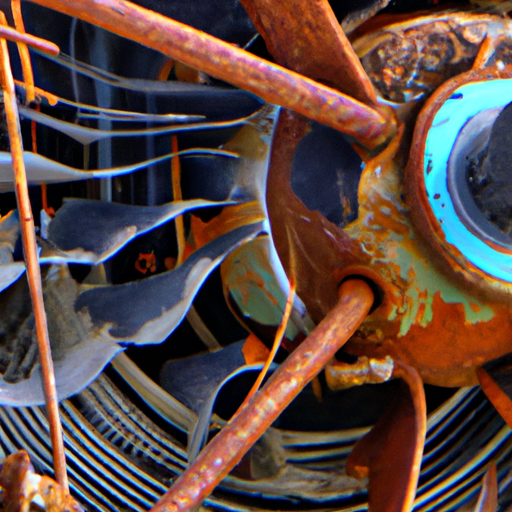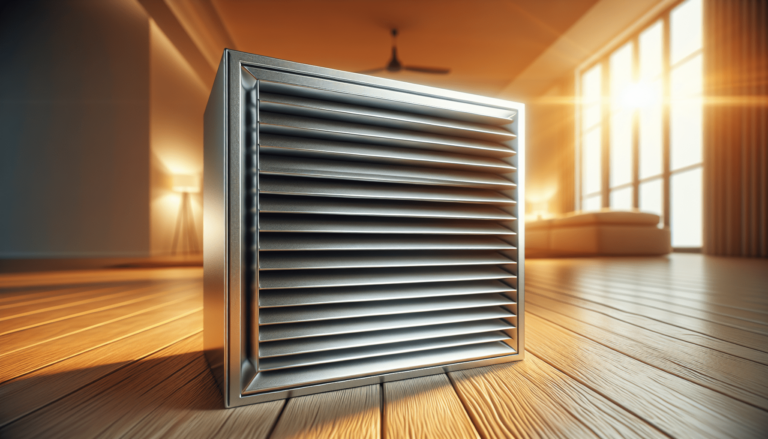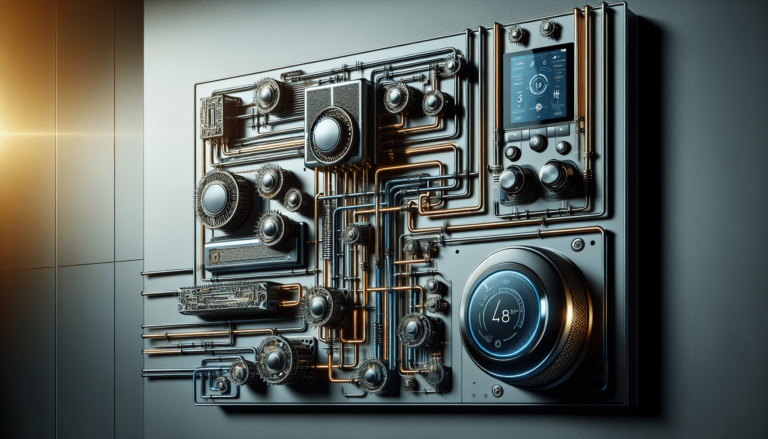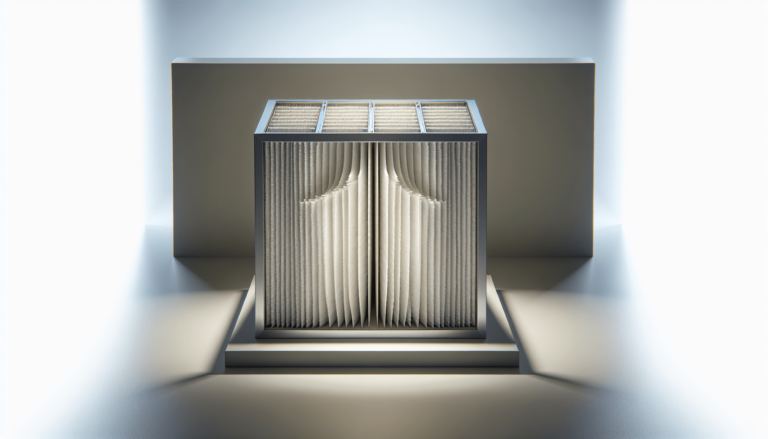

HVAC Services
Get Professional Repairs From The Area's Trusted HVAC Technicians. Ask About Our Services! We Offer Professional Heating & Cooling System Repairs And Guarantee Long-Lasting Results.
Got Question? Call us: (850) 678-2665Financing
HVAC Noise? Causes And Solutions Explored
Tired of loud HVAC noise? Explore the causes and find effective solutions in this article. From loose ductwork to compressor issues, we've got you covered.

Are you tired of dealing with the annoying noises coming from your HVAC system? Whether it’s a constant hum, rattling, or even banging, HVAC noise can be a major nuisance in your everyday life. But fear not, because in this article, we will explore the various causes behind the HVAC noise and provide you with some effective solutions to finally bring peace and quiet to your home. From loose ductwork to malfunctioning blower motors, we will cover it all. So sit back, relax, and let’s delve into the world of HVAC noise and how to combat it.
Common Causes of HVAC Noise
Loose or Misaligned Parts
One common cause of HVAC noise is loose or misaligned parts within the system. Over time, the constant vibration and operation of the HVAC unit can cause various components to become loose or shift out of their proper positions. Loose screws, bolts, or ductwork can create rattling or clanking sounds, disrupting the peace and quiet within your home.
Worn Bearings or Motors
If you notice a whining or squealing noise coming from your HVAC system, it could be due to worn bearings or motors. Bearings help to reduce friction between moving parts, and when they become worn or damaged, they can emit a high-pitched noise. Similarly, motors that are nearing the end of their lifespan may produce strange sounds as they strain to function properly.
Dirty or Clogged Filters
Dirty or clogged filters can also contribute to HVAC noise. As dust, dirt, and debris accumulate in the filter, the airflow through the system becomes restricted. This restricted airflow can cause the HVAC unit to work harder and create a buzzing or whistling noise. Regularly cleaning or replacing the filters is essential for both maintaining a quiet environment and improving the efficiency of your HVAC system.
Compressor Issues
The compressor is an essential component of an HVAC system, responsible for pressurizing the refrigerant and ensuring proper cooling. However, if the compressor starts to malfunction or becomes worn out, it can generate excessive noise. A loud banging or clanking noise coming from the outdoor unit may indicate compressor issues that need to be addressed promptly.
Fan Problems
HVAC systems have fans that help circulate the air throughout your home. If these fans become imbalanced, damaged, or covered in debris, they can create annoying noises. A rattling, grinding, or squeaking sound may indicate problems with the fan blades or motor. Regular inspection and maintenance of the fans can help prevent these issues and maintain a peaceful indoor environment.
Indoor HVAC Noise
Ductwork Issues
The ductwork in your home plays a crucial role in delivering conditioned air to different rooms. However, if the ductwork is improperly installed, has leaks, or suffers from loose connections, it can lead to HVAC noise issues. The air passing through gaps or loose sections of the ducts may create whistling or hissing sounds. It’s important to have the ductwork inspected and repaired by a professional to ensure proper airflow and minimize noise.
Vibrations in Blower or Air Handler
HVAC units consist of blowers or air handlers that help circulate the conditioned air. Sometimes, these components may vibrate excessively, which can result in an annoying buzzing or rattling noise. These vibrations can be caused by imbalances, loose mounts, or worn-out bearings. Proper maintenance and regular inspections can help identify and address these vibration issues, ensuring a quieter indoor environment.
Refrigerant Flow Problems
Problems with the refrigerant flow can be another cause of indoor HVAC noise. When there is an obstruction or restriction in the refrigerant lines, the system can produce gurgling or hissing sounds. These noises typically indicate issues with the expansion valve or clogged refrigerant lines. Hiring a Professional HVAC technician to diagnose and resolve these problems is crucial to restore proper refrigerant flow and reduce noise.
Thermostat Issues
While the thermostat itself may not make noise, malfunctions or issues with the thermostat can indirectly lead to HVAC noise problems. If the thermostat is not communicating properly with the HVAC system, it may cause the unit to cycle on and off frequently or operate inefficiently. These irregularities in operation can result in unnecessary noise. Calibrating or replacing the thermostat as needed can help prevent such noise-related issues.
Outdoor HVAC Noise
Condenser Unit Problems
The condenser unit is the outdoor component of the HVAC system responsible for releasing heat. If the condenser unit is damaged or malfunctioning, it can result in excessive noise. Banging or rattling sounds may indicate loose or damaged components within the unit. Regular inspection and maintenance of the condenser unit can help identify and resolve these problems, restoring a quieter outdoor environment.
Fan or Motor Issues
Similar to indoor HVAC systems, outdoor units also have fans and motors that can create noise when they are faulty. Worn-out bearings, imbalanced blades, or debris accumulation can all contribute to unnecessary noise. If you notice unusual sounds coming from the outdoor unit, it is advisable to have a professional HVAC technician inspect and repair the fans and motors to ensure proper functionality.
Refrigerant Leaks or Pressure Imbalances
Refrigerant leaks or pressure imbalances in the HVAC system can result in hissing or gurgling noises from the outdoor unit. These sounds indicate refrigerant leakage or irregular flow, which can cause the compressor to work harder and generate excessive noise. It is important to address refrigerant issues promptly to prevent further damage to the system and minimize noise pollution.
Debris Blockages
Outdoor HVAC units are susceptible to debris accumulation, such as leaves, twigs, or other debris. These blockages can interfere with the airflow and cause the unit to work harder, resulting in unusual noises. Regularly cleaning and clearing any debris around the outdoor unit can help maintain proper airflow and reduce unnecessary noise.
Impact of HVAC Noise on Comfort and Health
Disrupted Sleep
Excessive HVAC noise can significantly disrupt your sleep, leading to a restless night and fatigue the following day. Loud or constant noise can make it difficult to fall asleep and stay asleep, reducing the overall quality of your rest. Addressing HVAC noise issues can help create a peaceful sleep environment, allowing you to wake up refreshed and energized.
Increased Stress Levels
Continual exposure to HVAC noise can contribute to increased stress levels. Noise pollution can create a constant state of alertness and make it challenging to relax or focus. This increased stress can negatively impact your mental and physical well-being. By reducing HVAC noise, you can create a calmer and more comfortable living environment, promoting relaxation and reducing stress levels.
Reduced Productivity
HVAC noise in the workplace or home office setting can diminish productivity. Concentration and focus are often impaired when there is a constant background noise. It becomes challenging to complete tasks efficiently or engage in deep work. By eliminating or minimizing HVAC noise, you can create a conducive environment for productivity and enhanced performance.
Negative Effects on Mental Health
Prolonged exposure to HVAC noise can have negative effects on mental health. Constant exposure to noise pollution can lead to irritability, anxiety, and even depression. It can be difficult to find peace and tranquility when surrounded by excessive noise. Reducing HVAC noise levels can help create a more mentally soothing environment and improve overall well-being.
Methods for Reducing HVAC Noise
Regular Maintenance
Regular HVAC maintenance is essential for noise reduction and optimal system performance. Scheduling annual or bi-annual maintenance visits with a licensed HVAC technician can ensure that all components are in good working condition. During these visits, the technician will inspect and lubricate moving parts, check for loose connections, and clean the system thoroughly. By addressing potential noise-causing issues early on, you can prevent further damage and maintain a quieter HVAC system.
Tightening Loose Parts
One effective method of reducing HVAC noise is to tighten any loose parts. As mentioned earlier, loose screws, bolts, or connections can create rattling or clanking sounds. Conducting an inspection of the HVAC unit and tightening any loose parts can help eliminate or minimize these noises. However, it is important to exercise caution and leave any major repairs to a professional HVAC technician.
Replacing Worn Bearings or Motors
If worn bearings or malfunctioning motors are the source of HVAC noise, it may be necessary to replace these components. Worn bearings can be noisy and can jeopardize the proper functioning of the HVAC system. Likewise, aging or damaged motors can create unpleasant sounds. Consulting with an HVAC professional will help determine if bearing replacements or motor replacements are needed to restore a quieter system.
Cleaning or Replacing Filters
Dirty or clogged filters can obstruct airflow, leading to increased noise levels. Cleaning or replacing the filters regularly can help maintain proper airflow, reduce strain on the system, and minimize noise. Refer to the manufacturer’s guidelines or consult with an HVAC technician to determine the appropriate frequency for filter cleaning or replacement based on your specific system.
Compressor Repair or Replacement
If the compressor is the source of excessive HVAC noise, it may require repair or replacement. Issues with the compressor can lead to disruptive banging or clanking noises. A qualified HVAC technician should be contacted to diagnose the problem and recommend the most suitable course of action. Repairing or replacing the compressor can significantly reduce noise levels and improve the overall functionality of the HVAC system.
Fan Repair or Replacement
Faulty fans can be a common cause of HVAC noise. Whether it’s imbalanced blades, worn-out bearings, or debris accumulation, prompt fan repair or replacement is necessary to minimize noise pollution. An HVAC professional can assess the condition of the fan and determine the best approach to ensure a quieter operation.
Addressing Indoor HVAC Noise
Inspecting and Repairing Ductwork
Inspecting the ductwork is crucial in addressing indoor HVAC noise issues. A professional HVAC technician can assess the condition of the ducts, seal any leaks, and ensure proper insulation. Identifying and repairing any ductwork problems will help eliminate hissing, whistling, or rattling sounds caused by air escaping through gaps or loose connections.
Balancing Airflow
Balancing airflow is another method to reduce indoor HVAC noise. An HVAC technician can assess the airflow throughout your home and make any necessary adjustments to achieve a more balanced distribution. Balancing airflow helps minimize the strain on the HVAC system and reduces noise associated with uneven air distribution.
Reducing Vibrations with Insulation or Dampening Materials
To reduce vibrations in the blower or air handler, insulation or dampening materials can be applied to absorb the vibrations. These materials act as buffers, minimizing the transmission of vibrations to the surrounding structures and reducing noise. An HVAC professional can recommend the appropriate insulation or dampening materials based on your specific system and requirements.
Ensuring Proper Refrigerant Flow
Addressing refrigerant flow problems is essential in eliminating indoor HVAC noise. An HVAC technician can identify any obstructions or restrictions in the refrigerant lines and resolve them to restore proper flow. With optimal refrigerant flow, gurgling or hissing noises caused by irregularities in the system can be eliminated.
Checking and Calibrating Thermostat
To prevent indirect sources of HVAC noise, it is important to check and calibrate the thermostat. Malfunctioning thermostats can cause the HVAC system to operate inefficiently, resulting in unnecessary noise. An HVAC technician can ensure that the thermostat is functioning accurately and communicating effectively with the HVAC system to minimize noise-related issues.
Dealing with Outdoor HVAC Noise
Inspecting and Maintaining Condenser Unit
Regular inspection and maintenance of the condenser unit are crucial for addressing outdoor HVAC noise. An HVAC technician can check for loose or damaged components, clean the unit, and ensure proper airflow. By addressing any issues with the condenser unit promptly, you can reduce noise and improve the efficiency of your HVAC system.
Repairing or Replacing Faulty Fan or Motor
Faulty fans or motors in the outdoor unit can produce excessive noise. An HVAC professional can assess the condition of these components and recommend repair or replacement as needed. By ensuring that the fans and motors are functioning properly, you can restore a quieter outdoor environment.
Fixing Refrigerant Leaks and Balancing Pressures
Refrigerant leaks or pressure imbalances in the outdoor unit can result in unnecessary noise. An HVAC technician can detect and repair refrigerant leaks, as well as balance the pressures within the system. By addressing these issues, you can prevent the compressor from overworking and minimize noise pollution.
Clearing Debris and Obstructions
Regularly clearing any debris or obstructions around the outdoor unit is essential for noise reduction. Leaves, twigs, or other debris can obstruct airflow and cause the unit to work harder, resulting in increased noise levels. Taking the time to remove any blockages around the unit will help maintain proper airflow and reduce unnecessary noise.
Professional Help for HVAC Noise Issues
Importance of Hiring Licensed HVAC Technicians
When dealing with HVAC noise issues, it is crucial to hire licensed HVAC technicians for professional assistance. Licensed technicians have the necessary knowledge, skills, and training to accurately diagnose and address noise-related problems. They adhere to industry standards and regulations, ensuring that the work is done safely and effectively.
Choosing Experienced HVAC Contractors
Selecting experienced HVAC contractors is vital in resolving noise issues effectively. An experienced contractor understands the complexities of HVAC systems and has encountered a wide range of noise-related problems. Their expertise allows them to quickly identify the source of the noise and provide appropriate solutions, ultimately restoring a quieter environment.
Seeking Recommendations and Reviews
When searching for professional help with HVAC noise issues, it is beneficial to seek recommendations from friends, family, or colleagues who have had similar problems. Additionally, reading online reviews and testimonials can provide insights into the quality of service offered by different HVAC contractors. Taking the time to gather recommendations and research reviews can help narrow down your options and find a reputable professional.
Getting Multiple Quotes for Service
Obtaining multiple quotes for HVAC noise-related services is essential to ensure fair pricing and quality work. By comparing quotes from different contractors, you can gauge the estimated costs and evaluate the scope of the services being offered. Be sure to communicate your specific noise concerns to each contractor to ensure accurate pricing and recommended solutions.
Noise Reduction Techniques in HVAC Design
Proper Equipment Sizing
When designing an HVAC system, it is crucial to ensure that the equipment is appropriately sized for the space. Oversized or undersized units can result in excessive noise due to inefficient operation. Properly sizing the equipment helps maintain optimal airflows and reduces strain on the system, minimizing unnecessary noise generation.
Sound Dampening Insulation
Incorporating sound dampening insulation during HVAC system design can significantly reduce noise transmission. Insulation materials, such as acoustic blankets or foam panels, can be installed around the HVAC unit and ductwork to absorb and block sound waves. This helps create a quieter indoor environment by minimizing noise propagation.
Vibration Isolators
Vibration isolators are designed to minimize vibrations and noise caused by operating HVAC equipment. These devices separate the HVAC unit from the structural components of the building, reducing the transmission of vibrations. By installing vibration isolators, you can effectively isolate the unit and minimize noise transfer to the surrounding areas.
Duct Silencers
Duct silencers can be installed in the HVAC system to reduce noise generated by the airflow. These silencers are specifically designed to absorb and dissipate sound waves traveling through the ductwork. By incorporating duct silencers, you can significantly reduce the noise generated by the HVAC system, promoting a quieter indoor environment.
Location Considerations
Proper location planning during HVAC system design can help minimize noise impact. Placing the equipment away from noise-sensitive areas, such as bedrooms or offices, can help reduce the disturbance. Additionally, locating the outdoor unit on a stable surface and away from walls or other obstacles can help minimize vibrations and noise propagation.
Conclusion
Identifying and addressing the causes of HVAC noise is vital for both comfort and health. Loose or misaligned parts, worn bearings or motors, dirty filters, compressor issues, and fan problems are common culprits behind HVAC noise. Indoor HVAC noise can be attributed to ductwork issues, vibrations in the blower or air handler, refrigerant flow problems, and thermostat issues. Outdoor HVAC noise may arise from condenser unit problems, fan or motor issues, refrigerant leaks or pressure imbalances, and debris blockages. Excessive HVAC noise can disrupt sleep, increase stress levels, reduce productivity, and negatively affect mental health. Methods for reducing HVAC noise include regular maintenance, tightening loose parts, replacing worn bearings or motors, cleaning or replacing filters, compressor and fan repair or replacement. Addressing indoor HVAC noise involves inspecting and repairing ductwork, balancing airflow, reducing vibrations with insulation or dampening materials, ensuring proper refrigerant flow, and checking and calibrating the thermostat. Dealing with outdoor HVAC noise entails inspecting and maintaining the condenser unit, repairing or replacing faulty fan or motor, fixing refrigerant leaks and balancing pressures, and clearing debris and obstructions. Seeking professional help from licensed HVAC technicians, choosing experienced contractors, seeking recommendations and reviews, and getting multiple quotes are important for addressing HVAC noise issues effectively. Incorporating noise reduction techniques in HVAC design, such as proper equipment sizing, sound dampening insulation, vibration isolators, duct silencers, and location considerations, can significantly minimize noise generation. Regular maintenance and timely repairs help reduce noise levels and extend the lifespan of HVAC systems. Seeking professional assistance ensures accurate diagnosis and effective solutions for HVAC noise issues. By considering the impact of HVAC noise on comfort and health and implementing appropriate noise reduction measures, you can create a quieter and more pleasant living environment.







